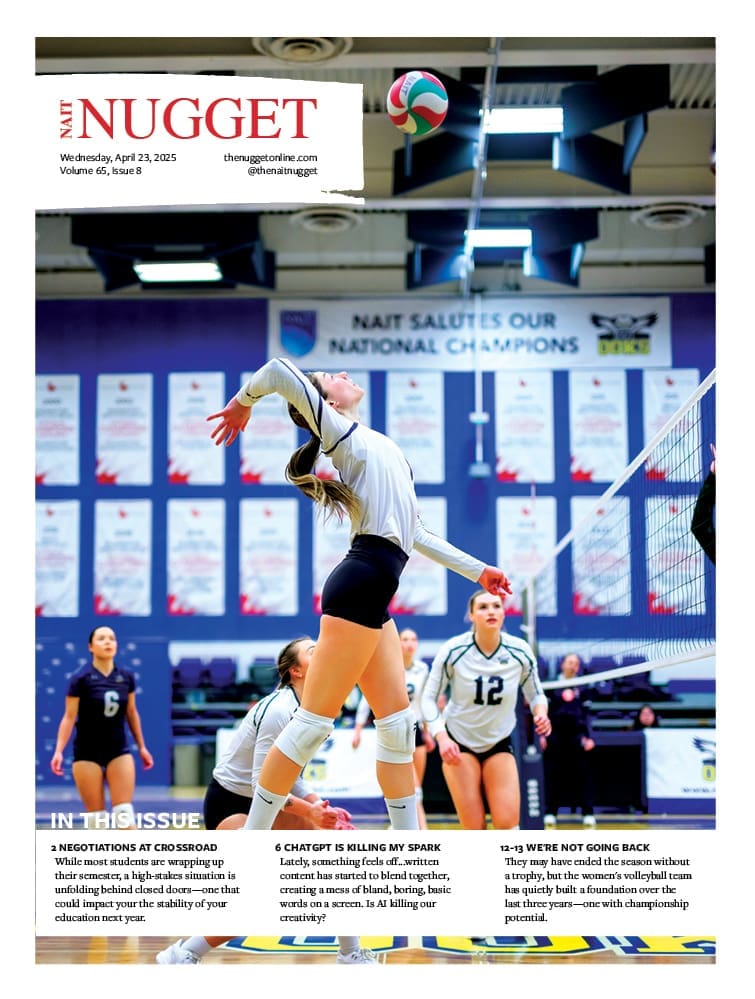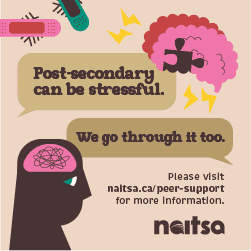A disability consultancy firm founded by a NAIT grad is helping someone in the community this winter by giving away a power wheelchair. The initiative is part of Disability: Accessibility by Design’s (ABD) HOPE Campaign. Brad Bartko, ABD’s founder and a NAIT Radio and Television grad, aims to continue the giveaway every year. As ABD approaches its two-year anniversary, Bartko said he wants to make someone’s Christmas season better with “a whole new meaning of independence.”
Bartko has teamed up with Edmonton-based wheelchair retailer Travel Buggy to give away a power wheelchair called the City 2 Plus. Since the model is lightweight and foldable, it creates easier travel for those using it. With this campaign, Bartko hopes to give someone the same experience he had.
“I had a power chair for 18 years, it broke down. It just got old, and the government said, ‘Hey, you’re only allowed one in your lifetime, so you’re done,’” he said. He started using a push wheelchair, which negatively affected his back, shoulders and quality of life until 2019, when someone fundraised for him to get a new power chair.
“I look at what [the chair’s] been able to do for my life and the freedoms and the flexibility and not having to rely on someone to push me … all that stuff I can do independent. And that goes that way for a lot of people. They just want to feel human and be able to do it themselves, and they have to rely on somebody all the time,” he said. “Just to be able to give that back and see the relief on someone’s face … the ability that it gave me, I want to be able to give that back, and if the government’s not going to do it, well, I might as well do it,” said Bartko.
The average cost of a power wheelchair can cost thousands of dollars—the same price as a car or down payment on a house for some, Bartko pointed out. “The power wheelchair, wheelchair in general or [any] mobility aid for that matter, is someone’s legs, right? And you take that away and all of a sudden they’re stuck at home or they feel trapped … it just gives the ability to unlock those burdens or those barriers,” said Bartko. Lots of people with disabilities live on limited income or below the poverty line, and many must choose between medication or other living requirements. “I don’t believe that needs to be the case, hence why I started a business to bring hope and motivate and inspire people to go out and be a bigger voice and make a bigger impact if they can,” he said.
“People with disabilities are the largest minority on the planet. That’s invisible, physical, mental. Everybody’s going to become disabled in some way, shape or form eventually,” said Bartko. “And it’s crazy to me the government doesn’t … understand the value of being inclusive and helping this community.”
Unfortunately, the disabled community isn’t always considered in community initiatives. A few days after the Nugget’s interview with Bartko, Edmonton city counsellor Michael Janz hosted “ED TALK,” a speaker series meant to bring Edmontonians together to discuss how to improve communities. But the event was held at a venue inaccessible to people who use wheelchairs, like Bartko, who later posted on Instagram about his frustration at the lack of accessibility. In the post, Bartko questioned, “How would you feel if your [sic] purposely not Included in events like this where your voices should matter?” Janz’s website states he “believes that together, we can build a better city for all ages, wages, and stages by putting the public interest first and investing in what we know makes our city great for everyone.”
According to Statistics Canada, 23 per cent of Edmontonians over the age of 15 have a disability. “It’s just time that we have a seat at that table as well and be included in those conversations,” Bartko said. “I had to start a business to really start to create change, and that’s where we’re at.”
Bartko said it’s important that more people speak up when they see something that’s inaccessible or discriminatory in public spaces and businesses. “It’s not to, you know, cancel them or get rid of them. It’s important to build a bridge. It’s important to have that conversation of why it’s important to be inclusive. The education, the awareness piece of why we need to become better. But again, it all starts with the conversation.”
For more information on Bartko and Disability: Accessible by Design, visit disabilityabd.com or follow @disability.abd on social media. Nominations for the power wheelchair giveaway are now closed, and the winner will be announced on December 15. Nominations for next year’s giveaway and information on other HOPE Campaign initiatives can be found at hopecampaign.com.






